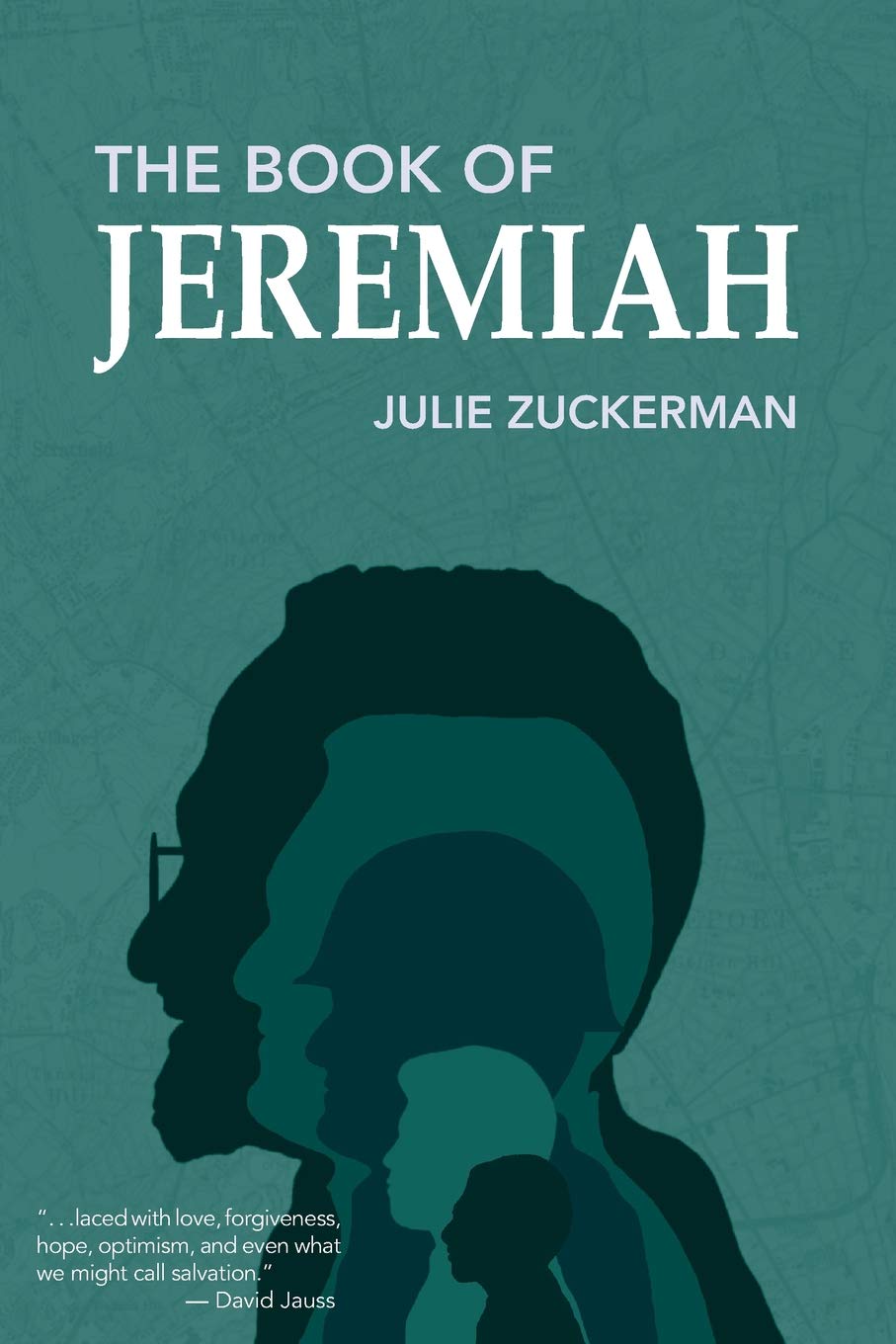
A Captivating Tapestry of Family: A Review of The Book of Jeremiah by Julie Zuckerman
Words By Jordan Ryder
Published May 3, 2019 by Press 53
From parents to parenting, mischievous youth to playful old age, Julie Zuckerman picks out and points at well-chosen moments in the life of Jeremiah Gerstler: a boy-turned-man growing up in the mid-1900s. Juxtaposing Jeremiah’s highs and lows, Zuckerman creates a rich tapestry of life, from family careers to the messy throes of loss and love. Through each story, Zuckerman is aware of her readers—she does not punch the point home with a heavy or high hand. She lets things stay complicated, gives details as you need them, and allows you to put them together at your own pace.
Despite its title, The Book of Jeremiah is by no means a religious book. Rather, religion is a layer in each of the characters’ lives. For Jeremiah, being Jewish is a simple, distant fact of life. It is more of an obstacle—in his career and public life, as he enters adulthood at the height of the second world war—than a fixture in his daily routine. For his mother Rikki, a first-generation immigrant with a young family, religion is community. It’s her rituals and routines—from Yom Kippur to the dishes she cooks each night. But it’s also the constant undercurrent of guilt that colors her life, especially when things go wrong. When her child has misbehaved or when a dish burns she believes she’s being punished. Her religion hovers in the pressure to be the “right kind” of good in her roles as a neighbor, wife, and mother. That feeling of always being watched and judged is ever-present in the pages that follow her.
For Hannah, Jeremiah’s daughter, a third-generation immigrant a few degrees removed from a traditional Jewish upbringing, religion is “family gatherings, chicken soup, and chopped liver on Manischewiz crackers.” It’s the smell of her grandmother’s kitchen. Though Judaism is a fact of her life, it is more of an afterthought than an overwhelming presence. Yet Hannah is able to find meaning in her tenuous religious ties when she confronts them.
As a non-religious reader, following these varied experiences across characters and time periods made Zuckerman’s stories fascinating and accessible. And it’s not all sugar and honey.
The Book of Jeremiah moves through a patchwork of experiences, settings, conflicts, and critical moments in Jeremiah’s life. We see him bend and crack, and sometimes break. In “A Strong Hand and an Outstretched Arm,” Zuckerman reveals a touching story about a mother learning to see the charm and brilliance in her son’s mischievous behavior. In a text that is, at times, steeped in religious guilt, Zuckerman takes us through the thinking behind a mother choosing to hit her child—while maintaining, somehow, our empathy (but not forgiveness) towards her. In “Three Strikes,” our gut wrenches along with Lenny’s as he realizes, so early in life, just how serious the consequences of his actions can be.
“Gerstler’s Triumphant Return”is perhaps the most emotional and satisfying story in this collection. Zuckerman conflates Jeremiah’s insatiable need for external validation with his desire for heroism. In one of the most heroic acts of the book, he sacrifices one (external validation from an authority) for the other (creating a lasting, meaningful moment). It causes him some consternation, but Jeremiah reconciles his conflicting emotions to protest on behalf of his daughter. And while he gives something up in front of his old colleagues—his political stance, professional dignity (in their eyes), and rational sense (also in their eyes), things that to him are exceptionally important—he gains something else he’s been searching for his whole life. Something the reader has been aware of since he was still a twelve-year-old boy in the first story: “A Strong Hand and an Outstretched Arm.” He surprises and impresses his daughter, someone whose opinion is important to him, and becomes the hero he always believed he would in one simple gesture.
In the end, Jeremiah learns he doesn’t have to be an important, dignified government employee, or a spy in the second world war, to be a hero. Reading “Gerstler’s Triumphant Return” is a reminder that, though this is a series of short stories, the book is a comprehensive, singular story too. Interconnected to a point, each story informs the others in a complicated web that debut author Zuckerman has cracked. If there is a climax in this collection, it is here.
With critical, insightful observations on themes like parenting, religion, and aging—“If the Frisbee player portended things to come, Jeremiah would soon become unseen, an obstacle in some younger person’s way” (124)—Zuckerman reveals her strengths as a writer. The Book of Jeremiah is complex, nuanced, and complementary, a truly triumphant first step for Zuckerman’s burgeoning career.